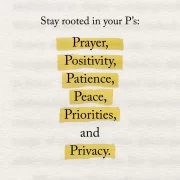
Opinions expressed by Entrepreneur contributors are their own.
The day I went to work at the company they welcomed me with a smile. They guided me to my place, showed me my desk, my chair, my computer and even gave me a white mug with my name printed in orange. In the desk drawer I found a dark, heavy and circular object that I immediately made my own, seeking to fulfill the expectations that I believed others had of me.
At the end of the first day, I turned off the computer, tidied up my desk, closed the drawers, and saying good night I went home. The dark, heavy, circular object was already in my trouser pocket. Or maybe in my chest, in my soul, in my heart.
It was the work stress that from that day on I would take with me wherever I went.
In my student years, no one told me what it would be like to work. Or maybe when they did I didn’t know how to listen. Anxious, I only thought about finishing university, starting work, earning my own money and finally achieving independence.
He had observed in others what it meant to work, but he had no idea what it was really like to wake up over and over again to always follow the same routine, to fight against the adversities of the day to day, from projects that get stuck, things that They never come out as one expects, from relentless and cruel delivery dates. I had seen in my own father’s face the tired eyes when he got home waiting at airports for delayed, diverted, crowded or canceled flights. Or his shadow leaving at dawn wearing a hat from Portillo for the cold of the early morning and returning home with no light, with his shoulders broken by the concerns that the possible devaluations implied, the coups d’état in the countries to which he traveled, the rumors about the closure of the company in which he worked with three children studying at the university at the same time. Despite having it in front of me, it never occurred to me to think about what it meant to live with the ballast of that dark, heavy and circular object around the neck. Nor in how it could affect me.
Although I really loved what I did, from that first day I began to feel the weight of work stress pressing on my neck, my shoulders, my heart. Weight that each year was becoming a little more difficult to tolerate due to the increase in tasks and responsibilities. Following my intuition, I tried to tame him in the best possible way. I was strong in the face of adversity, optimistic on cloudy days and tried to be less apprehensive, not to take everything so seriously.
Sure, without stopping working, without neglecting my performance.
Then I started running to tame my emotions. I ran a lot. Too much. In the kilometers I found some sense, but it vanished as soon as I stopped moving. Then the confusion and the unbearable weight of that dark, heavy and circular object that I made my own the day I started working would return.
Until one day I collapsed and everything fell apart. Although I do not pretend to tell that story, on the arduous road to find myself in the rubble of myself, I learned a few things about managing work stress that I share here because I know we all live it. Employees or entrepreneurs, business owners or salaried employees, photographers or writers, the demands of today’s world of work are brutal. The big expectations. And the tools that we usually have to deal with them are scarce …
1. TAKE CARE OF THE STORIES YOU TELL ABOUT YOURSELF
Sometimes, without realizing it, we are one of the main stressors in our life. The story that we repeat over and over about ourselves is inevitably subjective and obeys an interpretation that we have made of a certain situation. In these stories we tend to put ourselves as victims: the world conspires against us. Customers, bosses and business owners are the villains who seek to complicate things for us. They are the ones who stress us out.
We don’t realize that the voice we use to tell these stories is nothing more than the echo of our insecurities. Each time you are telling one of these stories (or each time you tell them to someone else) do the little exercise of telling that same story one more time, but from a neutral place. The simple change of voice will make you see things differently and understand the reasons and concerns of the other party.
Surprisingly you will also feel less overwhelmed.
2. NO TO SELF-IMPOSED STRESS
How many times have you answered that you are stressed when someone asks you how you are doing? Even if doing so doesn’t solve anything, you use the phrase over and over again. You yourself judge and sentence yourself: “I’m stressed.” By verbalizing it, you make stress your reality and end up overwhelming yourself even at times when you should be relaxed (did someone say Sunday afternoon?). Although you may not realize it, words have immense power to contribute to the creation of the reality in which you live. The next time you find yourself saying or thinking that you are stressed, try to better describe what is happening to you: “I feel insecure because tomorrow is Monday and we have not finished the project. I am afraid of the reaction of my boss ”. Doing so will help you break the vicious cycle of feeling eternally stressed. To locate an insecurity to work on it, to understand exactly what are the pending issues that you must solve to stop feeling so overwhelmed.
3. GIVE YOUR TIME
Although it sounds like a no-brainer, it is very difficult to take time for yourself when you exist perpetually stressed. The most dramatic thing is that it is absolutely essential to do it: you need your own time.
Every day.
That moment to climb your mountain, take your picture, write your novel, read that book, listen to that song. Talk to yourself. That moment when it’s just you. Force yourself to make it part of your routine and never let job stress take it away. 30 minutes each day can be enough to be good with yourself, with what you are, with what you dream; Enough to realize you forgot that dark, heavy, circular object in your office drawer.




